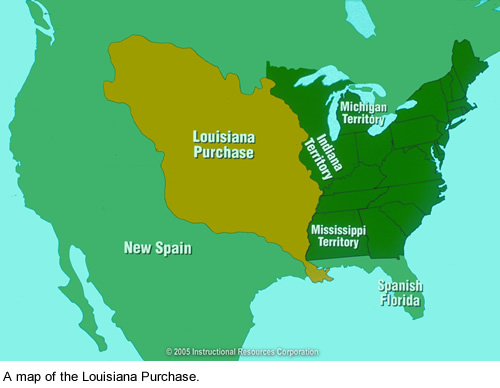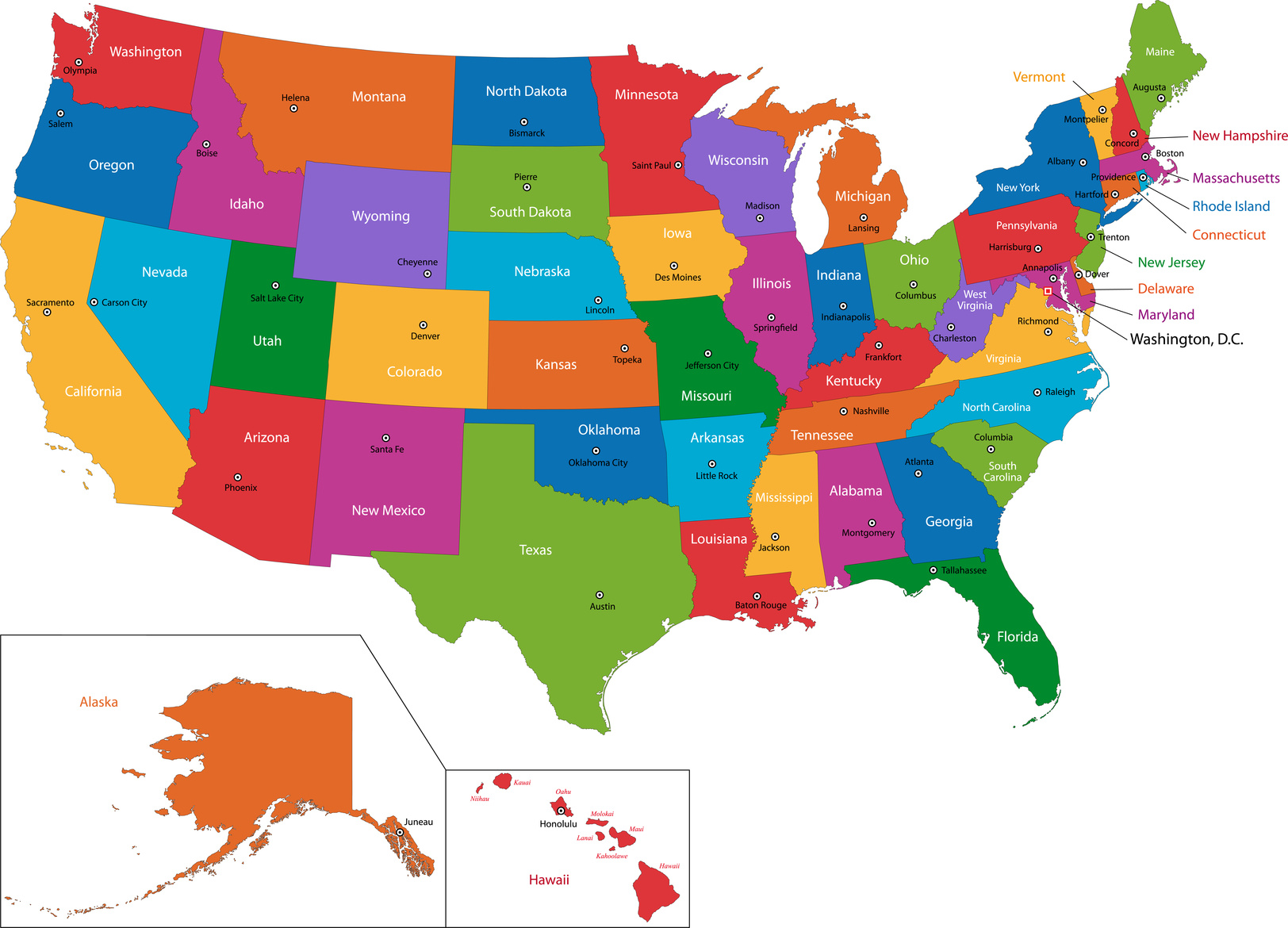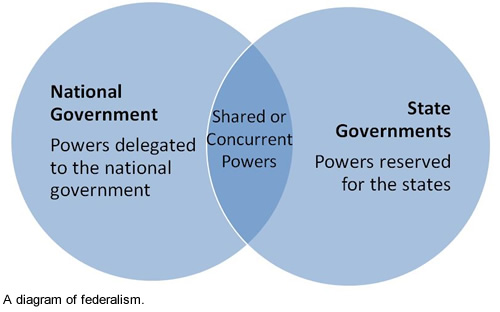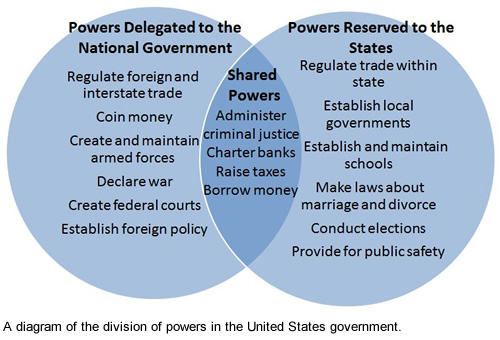Learn
To access the material on PBS Learning Media, you will need the PBS login information.
Federal System
The Constitution is essential in creating a federal system because it determines which powers will be held by the two levels of government, state and national. Federalism is a system of government in which there is an allocation of powers between federal and state governments known as a division of powers. In this lesson, you will explore the powers allocated to national and state governments.
Federalism
Read Amercian Government: Federalism
Division of Power
Study the diagram carefully to learn which powers are delegated to the national government, reserved to the states, and shared by both the national and state governments.
Powers Delegated to the National Government
The Constitution delegates or grants three types of powers to the national government: expressed powers, implied powers, and inherent powers.
Expressed powers, also known as enumerated powers or delegated powers, are powers delegated to the national government that are specifically stated in the Constitution. Most expressed powers are found in Articles I-III of the Constitution. Article I, Section 8 lists several powers including the power to:
coin money, borrow money, and levy taxes
regulate commerce
raise and maintain armed forces, declare war, and make peace
establish a post office
Read The Founders and Federalism to learn more about delegated powers.
Implied National Powers
Implied powers are not specifically stated in the Constitution, but are the authority that the national government requires to carry out the expressed powers. This authority is inferred or implied in Article I, Section 8 of the Constitution known as the elastic clause or "necessary and proper" clause.
The elastic clause states that Congress has the right "to make all laws which shall be necessary and proper for carrying into execution the foregoing powers, and other powers vested in the government of the United States."
Read Necessary and Proper Clause to learn more about implied powers.
Inherent National Powers
Inherent powers are those powers that are naturally given to the government simply because it is the national government and historically in charge of the sovereign nation. Like implied powers, inherent powers are not specifically stated in the Constitution.

Inherent powers include the authority to acquired new territory and deal with foreign nations. An example would be the power of President Thomas Jefferson to acquire and explore the Louisiana Territory.
Powers Reserved to the States
Reserved powers are not specifically mentioned in the Constitution, but are set aside or reserved for the states. They are not delegated to the national government nor are they prohibited to the states. These powers are reserved to the states by the Tenth Amendment in the Bill of Rights which states, "The powers not delegated to the United States by the Constitution, not prohibited by it to the States, are reserved to the States respectively, or to the people." Powers reserved to the states include:
regulating trade within a state
establishing local government and conducting elections
controlling public school systems
regulating marriage
establishing and enforcing state criminal laws
Shared Powers
Concurrent powers are shared by the national and state governments. In other words, there are some powers that both the national government and the state governments have the authority to carry out. The states may exercise any power not reserved for the national government as long as they do not conflict with the national laws. For example, both the national and state governments have the power to collect taxes. Shared powers include:
Building roads
Establishing courts
Making and enforcing laws
Borrowing money and collecting taxes
Providing for the health and welfare of the people
Taking private property for public use
Limits on Power
Prohibited powers may be denied either to the national government, the states, or both by Article I, Sections 9 and 10 of the Constitution. Neither the national nor state governments may deny certain protected rights to the people nor may either pass ex post facto laws. Ex post facto laws are laws made 'after the fact'. Ex post facto laws are prohibited by the Constitution in order to protect people from being convicted of a crime that was not a crime at the time the offense was committed.
Provisions are included in the Constitution to limit the power of the national government including the Bill of Rights to protect the liberties of its citizens and to protect the powers reserved to the states.
Certain powers are also denied to the states. For example, states are not allowed to coin money, tax imports, nor enter into war or sign treaties with other states or nations.
Read The Court and Democracy to learn more about the role of supreme court in America's three-branch system of government.


